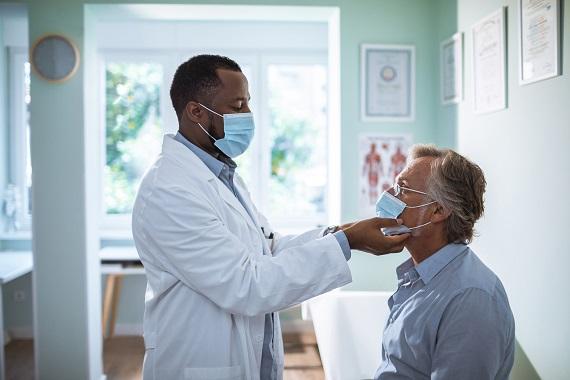Introduction
In the complex world of modern medicine, primary care physicians (PCPs) serve as the front line in keeping individuals and families healthy. From managing chronic conditions to treating sudden illnesses and offering preventive care, these healthcare professionals are often the first—and sometimes only—doctors many people see on a regular basis.
If you’ve ever had a cough that wouldn’t go away, needed a physical for work or school, or required guidance on managing blood pressure, chances are a primary care physician helped you. Their role is not only crucial but foundational to an effective and efficient healthcare system.
Who Are Primary Care Physicians?
Primary care physicians are medical doctors who specialize in comprehensive, general healthcare. They are trained to diagnose and treat a broad range of physical, emotional, and mental health conditions. Unlike specialists, PCPs focus on whole-person care across all age groups, genders, and organ systems.
There are several types of primary care doctors, including:
- Family Physicians: Care for patients of all ages, often entire families
- Internal Medicine Physicians (Internists): Specialize in adult medicine
- Pediatricians: Provide care for infants, children, and adolescents
- Geriatricians: Specialize in healthcare for older adults
- Obstetrician-Gynecologists (OB/GYNs): Can serve as PCPs for women, particularly for reproductive and preventive health
What Services Do Primary Care Physicians Provide?
Primary care is far more than checkups. A PCP is a long-term partner in health who offers a wide variety of services:
1. Preventive Care
- Annual physical exams
- Screenings for blood pressure, cholesterol, diabetes, and certain cancers
- Immunizations and vaccinations
- Wellness counseling (nutrition, weight management, smoking cessation)
- Routine lab tests
Early detection is key. Preventive care helps identify risk factors before they develop into serious conditions.
2. Diagnosis and Treatment of Common Illnesses
PCPs are trained to diagnose and treat a wide range of non-emergency conditions, including:
- Colds, flu, and sinus infections
- Allergies and asthma
- Minor injuries and infections
- Digestive issues
- Skin rashes and conditions
For many, the primary care physician is the first stop for medical concerns—and often, the only one needed.
3. Chronic Disease Management
Primary care physicians help patients manage long-term health issues like:
- Hypertension (high blood pressure)
- Diabetes
- Heart disease
- Arthritis
- Depression and anxiety
They monitor progress, adjust treatments, and provide lifestyle guidance to improve outcomes and quality of life.
4. Referrals and Care Coordination
When specialized care is needed, PCPs refer patients to trusted specialists and:
- Share relevant medical records
- Coordinate treatment plans
- Monitor follow-up care
- Advocate for the patient’s overall well-being
This ensures all aspects of your health are connected and managed smoothly.
Why You Need a Primary Care Physician
1. Continuity of Care
Seeing the same provider regularly helps build a relationship based on trust and familiarity. Your PCP gets to know your health history, preferences, and concerns—which leads to more personalized and accurate care.
2. Better Health Outcomes
Patients who have a primary care doctor are more likely to:
- Receive recommended preventive services
- Manage chronic conditions effectively
- Have lower rates of hospitalization
- Experience better overall health and longer life expectancy
3. Cost Savings
Primary care helps prevent the need for expensive emergency room visits and hospital admissions by managing conditions early and keeping patients healthier.
4. Convenience and Accessibility
Most primary care offices offer:
- Same-day or next-day appointments
- Virtual visits or telehealth
- Prescription refills and health advice without needing a trip to the hospital
This ease of access keeps patients engaged and proactive about their health.
When Should You See a Primary Care Physician?
You don’t need to be sick to benefit from seeing your PCP. Consider scheduling a visit when:
- You’re due for a routine checkup or screening
- You’re experiencing new or persistent symptoms
- You need vaccinations or preventive care
- You have a chronic condition that requires monitoring
- You need referrals to specialists
- You want help with mental health or lifestyle changes
Having a PCP ensures there’s someone in your corner who understands your whole health picture—not just one part.
How to Choose the Right Primary Care Physician
When looking for a PCP, consider the following:
- Credentials: Are they board-certified in internal medicine, family medicine, or pediatrics?
- Communication Style: Do they listen well and explain things clearly?
- Accessibility: Are appointments available when you need them? Is telehealth an option?
- Patient Reviews: Do other patients report a positive experience?
- Location & Insurance: Is the office nearby and do they accept your health plan?
The right PCP should make you feel heard, respected, and empowered.
The Future of Primary Care
With growing demand and advancing technology, primary care is evolving to offer:
- Telehealth and digital check-ins
- Team-based care with nurse practitioners, physician assistants, and behavioral health providers
- Personalized medicine using data from wearables and apps
- Focus on lifestyle medicine to prevent disease before it starts
This evolution makes primary care more accessible, proactive, and patient-centered than ever before.
Final Thoughts
Primary care physicians are your lifelong health partners. They don’t just treat you when you're sick—they help you stay well, manage complex health conditions, and navigate the healthcare system with ease. In an era of specialization and fragmented care, a trusted PCP is your anchor.



